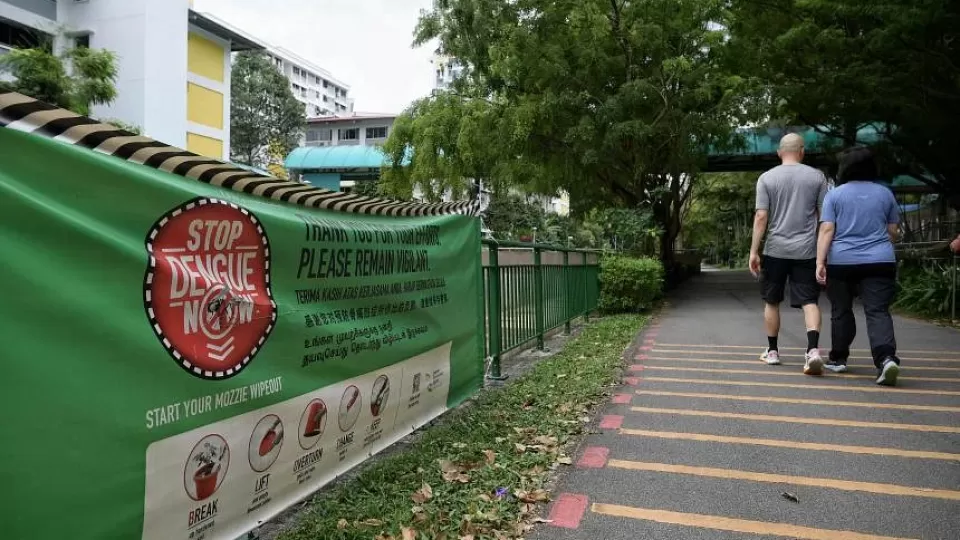January 3, 2023
SINGAPORE – The number of dengue cases in Singapore in 2022 looks set to be the second highest on record, based on figures on the National Environment Agency (NEA) website.
As at 3pm on Dec 30, 32,097 dengue cases had been reported – amounting to 91 per cent of the record high of 35,315 cases recorded in 2020. The previous annual record high was in 2013, when there were 22,170 cases.
NEA has previously attributed 2022’s high number of cases to the DenV-3 strain of the dengue virus, against which the population here has lower immunity.
Observers pointed to other possible reasons for the high number.
Climate conditions and temperature changes could have resulted in more mosquitoes here, said dengue expert Tikki Pang, a visiting professor at the National University of Singapore Yong Loo Lin School of Medicine.
With the easing of Covid-19 restrictions, greater freedom of movement may have led to more people being bitten by mosquitoes, he added.
“It may also be that there was more construction activity going on in 2022, compared with during the pandemic years of 2020 and 2021, thus resulting in more potential mosquito breeding sites,” said Prof Pang.
Associate Professor Alex Cook, vice-dean of research at the Saw Swee Hock School of Public Health, said the greater availability of rapid tests means it is easier to diagnose dengue patients now than 20 years ago.
But experts said it is difficult to predict if the number of dengue cases will remain high in 2023.
The number of infections will depend on factors such as climate conditions and the success of mosquito control programmes, Prof Pang said.
In 2021, the number of dengue cases reported in Singapore was just 5,258.
Dengue cases tend to fluctuate from year to year as incidence of the disease is associated with variations in climate, Prof Pang noted.
“Dengue epidemics often occur seasonally, with more cases found during wetter and warmer months. Fluctuations we see depend on rainfall amount and temperature gradients in any particular year, among many other factors,” he said.
Professor Duane Gubler, who chairs the dengue expert advisory panel and is emeritus professor at Duke-NUS Medical School, said that while dengue incidence is usually lower in years following an epidemic, that could change if a serotype, or strain, that has not circulated for a while re-emerges.
Prof Cook said Project Wolbachia – which releases male mosquitoes carrying the Wolbachia bacteria in high-risk areas to reduce the mosquito population over time – is the most promising change to the way Singapore deals with dengue.
Wolbachia-infected males that mate with females will result in eggs that do not hatch.
“If you look at the map of where clusters are, there are big holes where Wolbachia has already been deployed,” he said.
He also noted there are plans to expand the initiative to other areas in the country.
The project currently covers about 31 per cent of all Housing Board blocks.
Noting that the majority of deaths from dengue in Singapore are among those aged 65 and above, Prof Pang suggested that vaccination could help protect the elderly and vulnerable.
He had previously suggested expanding the use of Dengvaxia – a vaccine approved for use here since 2016 – among seniors.
In December, a new dengue vaccine developed by Japanese drugmaker Takeda Pharmaceutical was authorised for use in the European Union.


